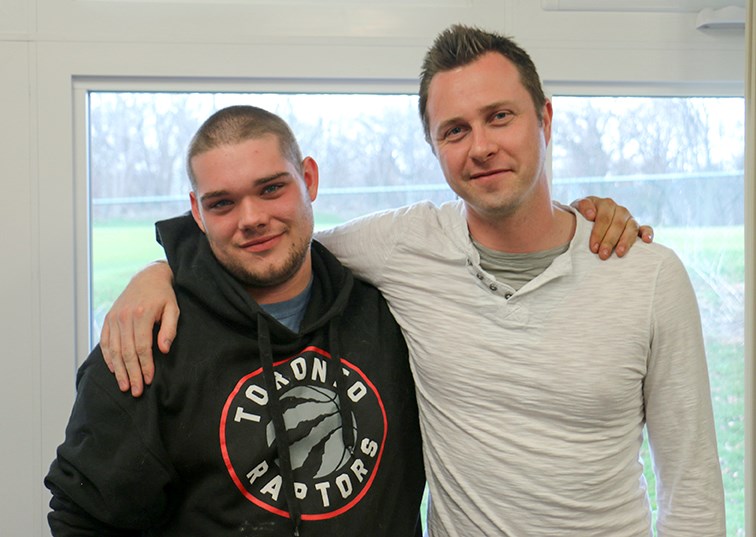Tara Jeffrey
Kevin Woll says he’d rather live in jail than go back to a group home.
“It wasn’t a fun way to spend my teenage years, that’s for sure,” said the 20-year-old Sarnia man. “Kids just shouldn’t be growing up in group homes.”
Wall was charged with his first offense at age 12, marking the beginning of several years of living at a now defunct group home for boys in Sarnia, where he became a Crown ward of the Sarnia-Lambton Children’s Aid Society.
“It was like being in custody,” he recalled. “I just didn’t care. I got arrested. I never learned anything.”
That was followed by a pair of short-lived placements before Kevin was successfully housed with a foster parent for three years.
It was the first time he’d felt any kind of permanency.
“I learned a lot when I moved there,” he said of the farm he called home until just recently. “It was really hands on; I learned a lot about cars and tractors and fixing things.
“I didn’t get arrested at all, and I even held a job for a year.”
When he turned 18, Kevin was no longer under the legal guardianship of CAS, and now lives on his own -- free from probation for the last three years. He’ll still receive support from the agency until he’s 21 -- namely, from family support worker Brandon Ceschan, who helps out with things like driving to appointments. They’re working together to help Kevin land a secure job.
“He seems a lot happier now,” said Ceschan. “He’s a real hands-on worker; very self sufficient.”
Kevin’s story and many others have been a catalyst for a major shift taking place within the Children’s Aid Society -- to keep youth out of group homes and with families where they belong, said executive director Dawn Flegel.
“We’ve heard directly from the youth that they really want to be with families and not in group care,” she said. “So we’ve paid attention, and created supports and services for youth to be supported in their families -- whether it be their birth, kinship or foster families.”
Over three years, there’s been a significant drop in the number of days spent in group care for Sarnia-Lambton youth -- from 24% to 9%. The provincial average is 13%.
Further, for more than 90% of families the local CAS serves, their children remain with their families, never actually entering foster care.
The numbers stem from data collected between 2010-2014 recently made public via a Key Performance Indicators report -- a first for Children’s Aid Societies across Ontario -- which measures how well agencies are serving children, youth and families.
“One of our directions is ‘Chasing Zero,’” said Flegel. “Hopefully by 2020, we won’t have any children and youth in Sarnia-Lambton growing up in care.
The agency currently acts as legal guardian to 125 children and youth in care.
“Our commitment to them is that they either return to their families or be placed with kin, or have someone adopt them -- that there be some permanency there for them.”
Chasing Zero is fueled by a successful new model called “Fostering for Permanency,” Flegel said, pointing to a collaboration between foster parents and birth parents to bring children home safely.
If the children cannot be returned to their birth parents or kin, the foster parents are encouraged to adopt.
“That program is having a significant impact, in terms of not having kids waiting to find permanent families,” said Flegel. “We have amazing foster families in Sarnia-Lambton, and they want to do the right thing for the kids.”
